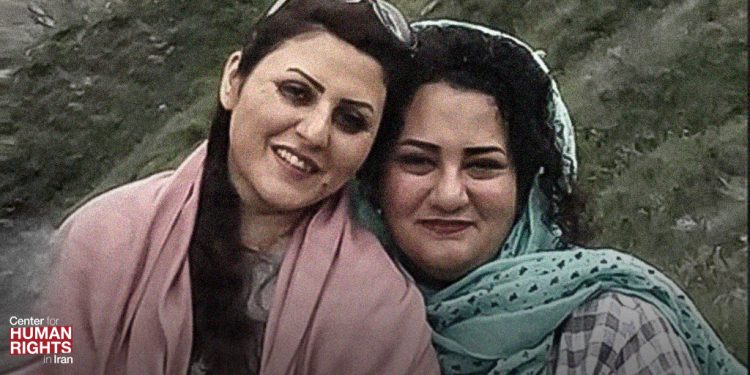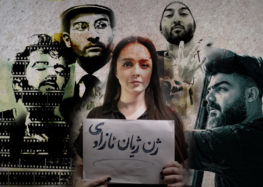Two Political Prisoners Sentenced to 3.7 More Years in Jail for Protesting Death Penalty
 Atena Daemi Illegally Denied Visits Since March 2019
Atena Daemi Illegally Denied Visits Since March 2019
Political prisoners Atena Daemi and Golrokh Iraee Ebrahimi have been told they must serve an additional 3.7 years in prison for the charges of “insulting the supreme leader” and “propaganda against the state,” Daemi’s mother informed the Center for Human Rights in Iran (CHRI) on July 15, 2019.
Masoumeh Nemati said the two women are being punished for writing open letters condemning the September 2018 execution of political prisoners, including Ramin Hossein Panahi, Zanyar Moradi and Loghman Moradi, and for singing aloud the revolutionary anthem, “Oh Martyr,” to honor the executed prisoners—an act the court deemed an insult to Supreme Leader Ali Khamenei.
“Neither of them accepted the charges and said they had no intention of insulting anyone by singing that anthem,” Nemati told CHRI.
“We were expecting Atena to go free,” she added. “She was supposed to be released from prison on July 4, 2020, but now she has to stay behind bars for several more years. This really isn’t fair. The new charges were made by the prison’s director only out of spite, based on false evidence and bogus witnesses.”
Judge Iman Afshari of Branch 26 of the revolutionary court in Tehran also banned the two from engaging in any civil rights-related activities for two years. It is not known when the ruling, first reported by Persian media outlets on July 14, 2019, was issued. Both women plan to appeal.
Held in Evin Prison since November 2016, Daemi has been serving a seven-year prison sentence for meeting the families of political prisoners, criticizing the Islamic Republic of Iran on Facebook, and condemning Iran’s 1988 mass executions of political prisoners. She qualifies for parole in 2020.
Iraee had been serving a six-year prison sentence since October 2016 when she was unexpectedly released on bail for unknown reasons in April 2019. It is not clear if or when she will return to the prison.
“Atena’s lawyer said that if the verdict stays the same on appeal, at the very least she would qualify for her sentences to be combined, which would reduce her time in prison to one year,” said Nemati.
Nemati also told CHRI that she hasn’t been allowed to visit her daughter since March 2019, which is a violation of Iranian law:
“We have not been allowed to visit her in prison since the [Iranian] New Year. We have complained about this to the prosecutor and the prison’s director on numerous occasions and mentioned it in the new trial. Atena even wrote a letter to the head of the State Prisons Organization but they still haven’t allowed face-to-face visitation.”
According to Iran’s State Prisons Procedures, weekly visits with family members are a right to which all prisoners are entitled, not a privilege. Yet CHRI has documented numerous instances in which these rules have been frequently flouted—including between inmates who are mothers and their young children.
Daemi has also been straggling to access medical treatment, according to Nemati:
“We have gotten several doctor’s appointments for Atena to check on a suspicious lump in her breast. The doctor said she needs to get a mammogram and a sonograph every few months. But it has been months since she was last transferred out of prison for a check-up. We even cover all the expenses ourselves. The authorities have refused to answer any questions about their lack of attention to her medical needs and the right to prison visitation but instead have been very quick to put her on trial and punish her to the fullest extent. Their actions are unjust and unlawful.”
Political prisoners in Iran, including elderly inmates, are singled out for harsh treatment, which often includes denial of medical care. The threat of withheld medical care has also been used as an intimidation tool against prisoners who have challenged the authorities or filed complaints.






